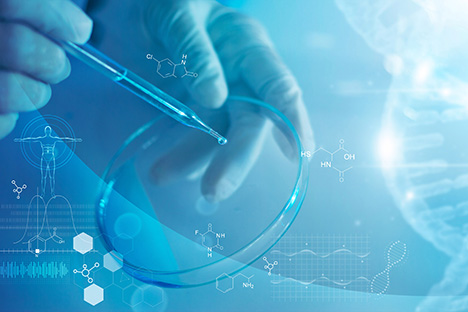Editor’s Note: In today’s column, we’re sharing an article by The Oxford Club’s Senior Markets Expert Matt Benjamin from the July issue of The Oxford Communiqué.
In it, he explores what he believes will be the future of medicine in the U.S.
We think you’ll enjoy it.
– Rachel Gearhart, Associate Publisher
Let’s face it: Modern medicine relies on a considerable amount of educated guesswork.
I’m not criticizing healthcare professionals, medical researchers, or the makers of drugs and medical devices. They do admirable – and often heroic – work.
Advances in medicine have been reducing the death rate from cancer by several percentage points a year for decades. Deaths from cardiovascular disease have declined dramatically over the past century. And infectious diseases killed 19% fewer Americans in 2014 than they did in 1980.
Treatments for a wide variety of diseases and ailments continue to improve dramatically and rapidly. Oxford Club Chief Investment Strategist Alexander Green likes to point out that Moderna (Nasdaq: MRNA) and Pfizer (NYSE: PFE) had COVID-19 vaccines ready for clinical trials within a couple of months of the pandemic reaching the U.S. The fastest vaccine development prior to this, for mumps in 1967, took four years.
But we’re all familiar with the experience of going to the doctor or the hospital and being told that a treatment that works for most people will probably work for us. And the process of determining the effectiveness of a treatment or drug for an individual often involves trial and error.
That’s because there is significant genetic diversity both across and within population groups. Our genetic differences impact our vulnerability to various diseases and affect how well we respond to specific treatments.
We’ve long known that certain populations are more susceptible to particular diseases. For example, sickle cell anemia disproportionately affects people of African descent, and Tay-Sachs disease disproportionately affects people of Ashkenazi Jewish descent.
But genetic differences between one population group and the next are modest. The vast majority of human genetic diversity is at the individual level, not between ethnic, geographical and racial groups.
And that’s been a major obstacle for modern medicine.
Because of your individual genetic code, you might be at greater risk for certain diseases. And each of us can respond to a plethora of drugs and treatments in different ways.
Indeed, small variations in your genetic code mean that you might not react well to a generally effective treatment or drug, or that you might experience greater side effects.
Of course, this knowledge is not new. Doctors have always known that some individuals would not respond well to certain cures; they just couldn’t determine who those individuals would be. Thus the guesswork that is often involved in medicine.
Today, however, there is something they can do about it: It’s called personalized, or precision, medicine.
An Individual Approach
Essentially, this emerging field of medicine is about determining important genetic traits in an individual in order to tailor a treatment regime to that person.
“If doctors know your genes, they can predict drug response and incorporate this information into the medical decisions they make,” said Dr. Rochelle Long, a pharmacogenomics expert at the National Institutes of Health.
And understanding a person’s genetic makeup is becoming easier every day due to various technologies that can handle the enormous amounts of data involved…
They include…
- Gene sequencing: Determining the sequence of nucleotides in a piece of DNA
- Bioinformatics: The use of computers and databases to collect, store, analyze and interpret biological data
- Drug discovery: Combining the identification of effective drugs with individuals’ biological data to provide insights into the mechanisms and potential treatment options for each patient
- Companion diagnostics: The use of medical devices, often in vitro, to provide information to maximize a corresponding treatment (or to minimize side effects)
- Big data analytics: Using advanced computing tools to extract valuable treatment guidance from large volumes of data.
All of these innovative medical techniques are enabled by new technologies – ranging from blockchain to cloud computing to artificial intelligence – that can analyze and reliably store extremely high volumes of data and also learn from that data.
And this personalized medicine market is growing rapidly.
Coming to a Healthcare Professional Near You
Estimates vary (because different forecasts include or exclude some technologies), but one authoritative source put the size of the global precision medicine market at about $83 billion as of 2022. It’s growing more than 12% a year and is expected to exceed $254 billion by 2032.

Of course, all that data analysis and manipulation happens behind the scenes. So what will this new field look like to patients?
Well, that will vary from disease to disease and treatment to treatment.
But oncology is the field that uses precision medicine most extensively. In order to determine and customize the most effective cancer treatment for an individual, physicians are increasingly relying on tissue biopsies; blood, urine and genetic testing; and PET and CAT scans.
And personalized medicine is now expanding to other ailments, including respiratory diseases, nervous system disorders, and immunology and genetic diseases, among others.
All that testing will be aided by wearable devices and applications that allow for real-time tracking of health parameters and metrics to generate even more data about treatment effectiveness.
Personalized, precision medicine is all about data. The more of it that can be collected and analyzed, the more effective treatments will be.
